The National Beekeeping and Honey Mission (NBHM) is a crucial initiative to promote beekeeping and harness the benefits of honey production in India. In this blog, we will explore the key features, schemes, and benefits of NBHM while maintaining a simple and easy-to-understand tone. Beekeeping plays a vital role in agriculture and biodiversity, and NBHM aims to empower beekeepers, enhance honey production, and boost the overall agricultural landscape of the country.
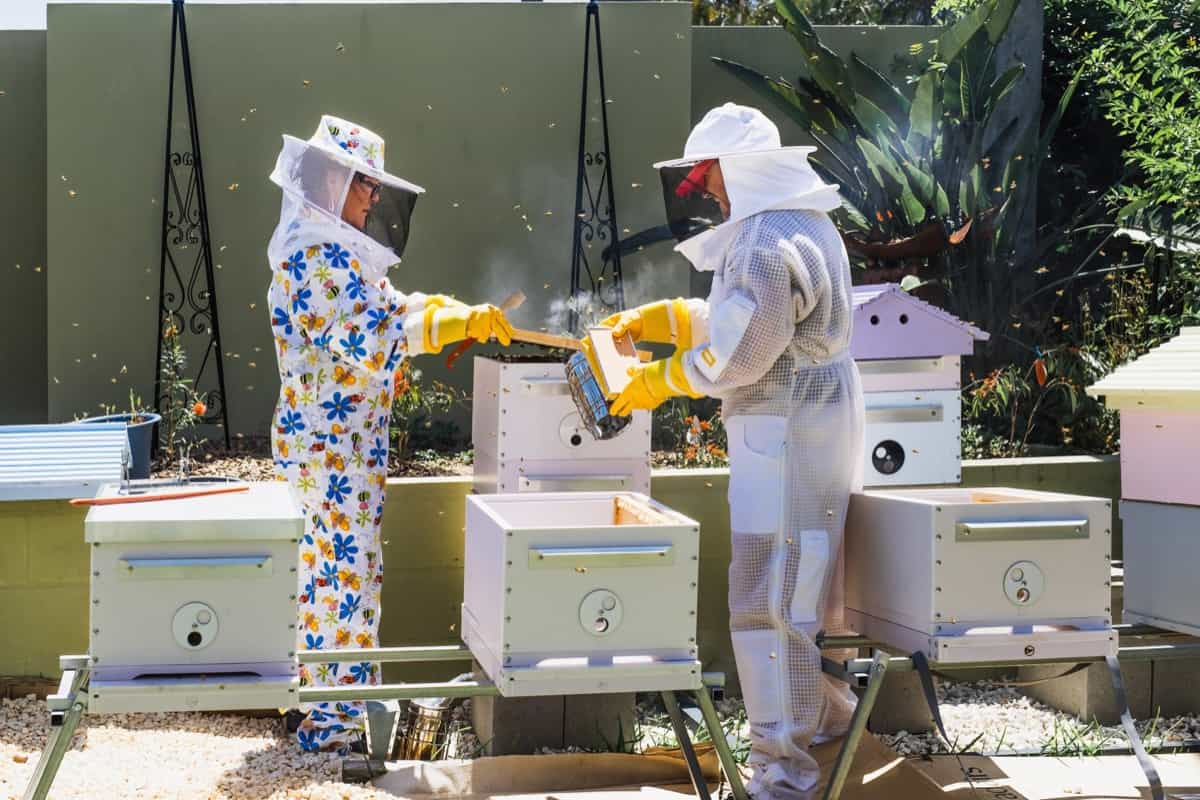
Introduction to the National Beekeeping and Honey Mission (NBHM)
The National Beekeeping and Honey Mission (NBHM) was launched in 2020 as an Atma Nirbhar Bharat package by the Union Government. This visionary scheme is administered by the National Bee Board (NBB) and is slated for implementation over three years from 2020 to 2023.
At its core, NBHM aims to propel the scientific practice of beekeeping across India, thereby contributing to what is aptly termed the “Sweet Revolution.” Operating under the purview of the Ministry of Agriculture and Farmers’ Welfare, Government of India, this initiative is funded entirely by the central government (100% central sector scheme).
NBHM’s synergy with various other beekeeping-related schemes makes it even more powerful. It collaborates with entities like KVIC’s Honey Mission, MSME, the Mission for Integrated Development of Horticulture, and the ministries of rural development, AYUSH, commerce and industry, tribal affairs, and more.
The Objective of National Beekeeping and Honey Mission (NBHM)
The Indian government has approved the National Beekeeping and Honey Mission (NBHM), a Central Sector Scheme, for two years. This mission aims to promote scientific beekeeping aggressively, focusing on capacity building, women’s participation, and infrastructure development, including Integrated Beekeeping Development Centres (IBDCs), digitization, value addition, market support, and research and development through three Mini Missions (MM-1, MM-2 & MM-3), all geared towards achieving the “Sweet Revolution” in the country.
Importance of Beekeeping for Biodiversity Conservation
- Pollination Power: Bees are prolific pollinators, aiding the reproduction of countless plants, including many food crops. This ensures biodiversity in flora.
- Ecosystem Stability: A thriving bee population contributes to ecosystem stability by maintaining plant diversity, which, in turn, supports various animal species.
- Genetic Diversity: Bees facilitate cross-pollination, enhancing genetic diversity in plant populations and making them more resilient to environmental changes.
- Habitat Preservation: Beekeepers often protect natural habitats, promoting the well-being of wild bees and other wildlife that rely on these areas.
- Conserving Native Bees: Beekeeping practices can raise awareness about the importance of conserving native bee species, which are vital to local ecosystems.
- Food Chain Links: Bees are part of complex food chains. Their decline can disrupt these chains and affect the populations of other species.
- Medicinal Plants: Bees play a role in pollinating medicinal plants, contributing to the availability of natural remedies, and supporting biodiversity in forests.
- Pest Control: Some bee species feed on crop pests, reducing the need for chemical pesticides that can harm biodiversity.
- Seed Production: Bees assist in seed production for many plants, ensuring a continuous cycle of growth and regeneration.
In case you missed it: Buzzing Towards Success: Creating a Comprehensive Beekeeping Business Plan
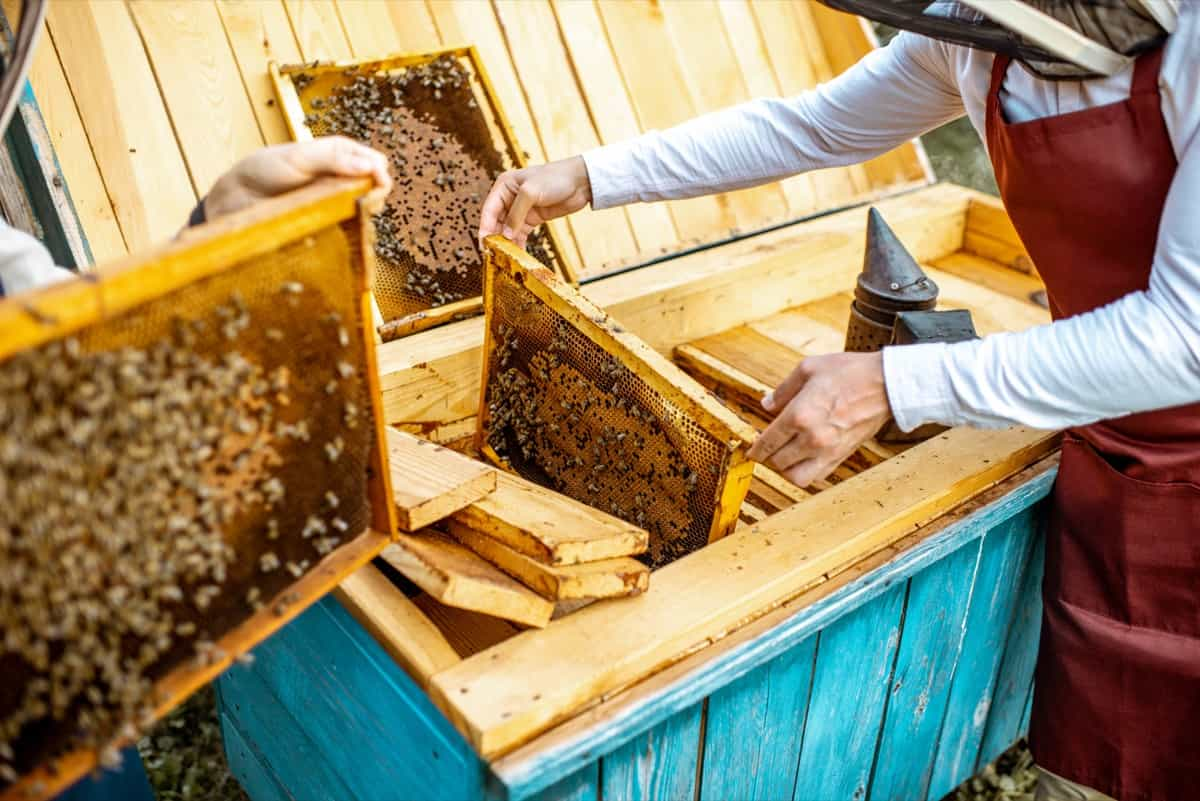
Promotion of Sustainable Beekeeping Practices
- Holistic Growth: The scheme seeks to promote the comprehensive development of the beekeeping sector, providing sustainable livelihoods for individuals and communities.
- Agricultural Augmentation: By facilitating pollination through beekeeping, the scheme contributes to increased horticulture and agriculture production, enhancing food security.
- Infrastructure Development: It aims to establish critical infrastructure such as Integrated Beekeeping Development Centres (IBDCs), bee disease diagnostic labs, honey testing labs, and more.
- Empowering Women: Special emphasis is placed on empowering women through beekeeping, allowing them to participate actively in income-generating activities.
- Technology Integration: The scheme promotes the use of technology, including blockchain for traceability and IT tools for online registration and monitoring.
- Honey Corridors: The creation of honey corridors in potential areas ensures the availability of resources for beekeeping.
- Entrepreneurship: It encourages agri-entrepreneurs and startups to invest in beekeeping and honey production.
- Trade Promotion: The scheme facilitates trade agreements between traders/exporters and beekeepers, enhancing market access.
- Technology Diffusion: It disseminates the latest beekeeping technologies and skills to improve honey and beehive product production.
- Institutional Framework: The scheme promotes a collective approach through Self-Help Groups (SHGs), Farmer Producer Organizations (FPOs), etc., to benefit beekeepers.
- Diversification: By producing high-quality honey and various beehive products, the scheme contributes to economic, social, and ecological benefits, both domestically and in global markets.
Activities Under the National Beekeeping and Honey Mission
- Quality Nucleus Stock Development Centers: Produce quality nucleus stock of honeybees.
- Development of Bee Breeders: Encourage experienced beekeepers to multiply quality bee colonies.
- Integrated Beekeeping Development Centres (IBDCs)/CoEs/Technical Centres: Establish comprehensive centers for beekeeping development.
- Honey & other Bee Hive Products-Quality Control/Testing Labs & Mobile Labs: Set up regional and mini/satellite honey testing labs.
- Setting up of Honeybees Disease Diagnostic & Treatments Labs/Mobile Labs: Establish labs for honeybee health diagnosis.
- Setting up Beekeeping Equipment Manufacturing Units and Standardization of Beekeeping Equipment: Promote the production of beekeeping equipment.
- Custom Hiring Centres: Develop centers for hiring honeybee colonies.
- Setting up of Api-therapy Centres: Create health centers using bee products.
- Registration and Insurance/traceability system/developing a database/baseline survey/bee surveillance & Disaster Management: Strengthen data collection and traceability.
- Empowerment of Women through Beekeeping: Support women’s involvement in beekeeping.
- Technology Demonstrations on the impact of Honeybees on yield enhancement & quality improvements of Agrl./Hortl. Produce.
- Promotion of new global technology for the development of scientific beekeeping.
- Distribution of specialized beekeeping equipment for high-value beehive products.
- Promotion of Plantations, Bee Friendly Plants/Flora/Bee Gardens.
- Strengthening institutional framework/setting up State Bee Boards/Missions/Cooperatives.
- Seminars/Workshops/Conferences: Organize national, state, and district awareness programs.
In case you missed it: How to Start Beekeeping in Canada: Check How this Guide Helps Beginners
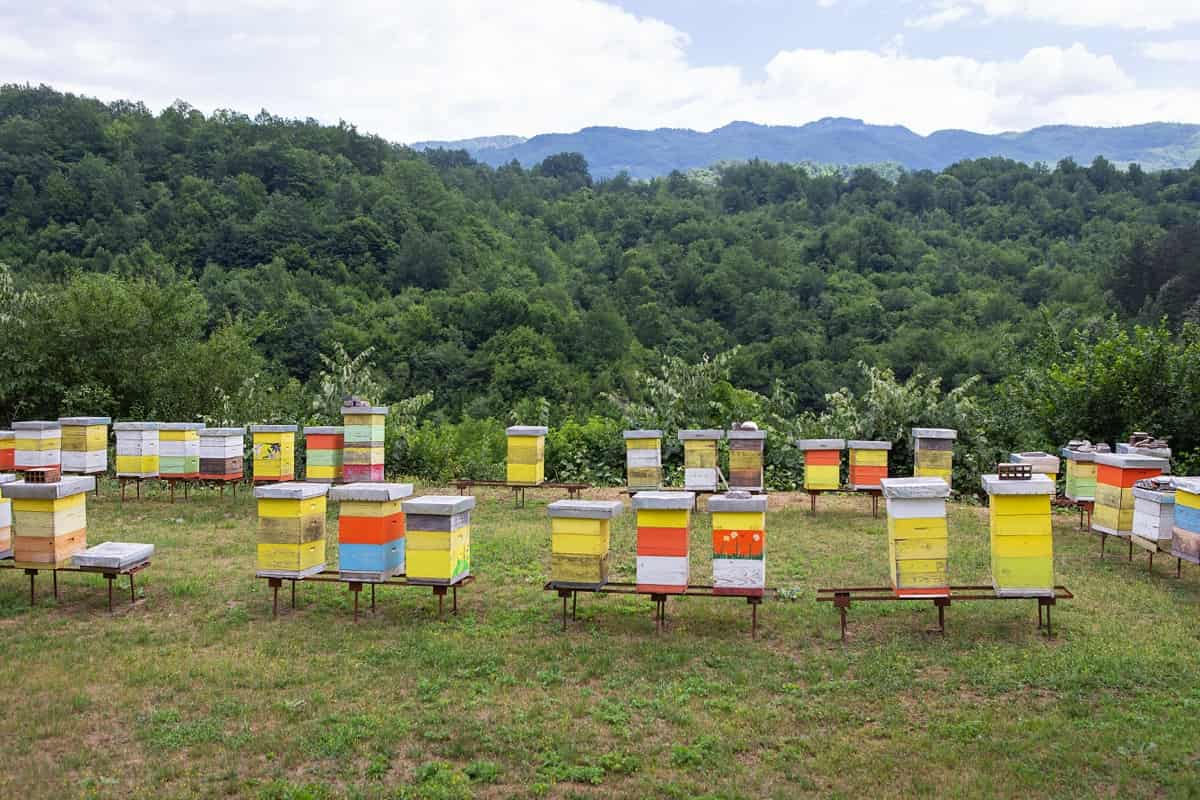
Enhancing Honey Production and Quality
Enhancing honey production and quality involves implementing practices that optimize bee health, hive management, and honey extraction techniques. This includes ensuring bees access diverse forage, controlling diseases and pests, and using modern beehive technology. Additionally, it requires careful harvesting and processing to maintain honey’s natural flavors and qualities.
Training and Capacity Building Programs
Physical Training for Farmers/Beekeepers:
- Within-State Training: Seven-day training within the state for batches of 25 participants, with maximum assistance of Rs. 1.75 lakhs per training.
- Out-of-State Training and Exposure Visits: Seven-day training or exposure visits outside the state for batches of 25 participants with assistance of up to Rs. 2.00 lakhs per training.
- Outside the Country Training/Exposure Visits: Training or exposure visits abroad with maximum assistance of Rs. 4.00 lakhs per candidate.
Physical Training for Officials/Field Functionaries:
- Within-State Training: Seven-day training within the state for batches of 10-15 officials with the assistance of Rs. 300 per day per participant plus eligible TA/DA.
- Out-of-State Training and Exposure Visits: Seven-day training or exposure visits outside the state for batches of 10-15 officials with the assistance of Rs. 800 per day per participant plus eligible TA/DA.
- Outside the Country Training/Exposure Visits for Officials: Training or exposure visits abroad for officials with maximum assistance of Rs. 6.00 lakhs per candidate.
Financial Support Schemes for Beekeepers
These schemes typically provide subsidies and credit facilities to beekeepers to purchase modern beehives, bee colonies, and equipment. Scientific data reveals that such support leads to increased honey production. For instance, in India, where the National Beekeeping and Honey Mission (NBHM) provides financial assistance, there has been a substantial rise in honey production, from 76,150 metric tons in 2017-18 to 111,000 metric tons in 2020-21. This demonstrates the positive impact of financial support schemes in bolstering beekeeping activities and honey yields, contributing to food security and biodiversity conservation.
Research and Development Initiatives in Beekeeping
Research and Development (R&D) initiatives in beekeeping focus on advancing scientific knowledge and technology to improve beekeeping practices. These efforts encompass breeding quality honeybee stocks, developing disease diagnostic labs, and promoting innovative beekeeping equipment manufacturing. R&D also explores the health benefits of bee products like Royal Jelly and Bee Venom. Moreover, it aims to enhance beekeeping’s sustainability by cultivating bee-friendly plants and setting up bee gardens.
Pollination Services and Agricultural Productivity
Pollination services, primarily provided by bees, significantly enhance agricultural productivity. Bees contribute to the pollination of various crops, increasing yields and quality. Globally, pollinators, including bees, produce about 75% of food crops worth approximately $235 billion annually. In the United States alone, the economic value of insect pollinators, mainly bees, is estimated at $16 billion annually. For example, almond crops heavily depend on honeybee pollination, costing around $350 million annually.
In case you missed it: 17 Key Rules for Effective Beekeeping Management: Basic Tips for Profitable Honeybee Farming
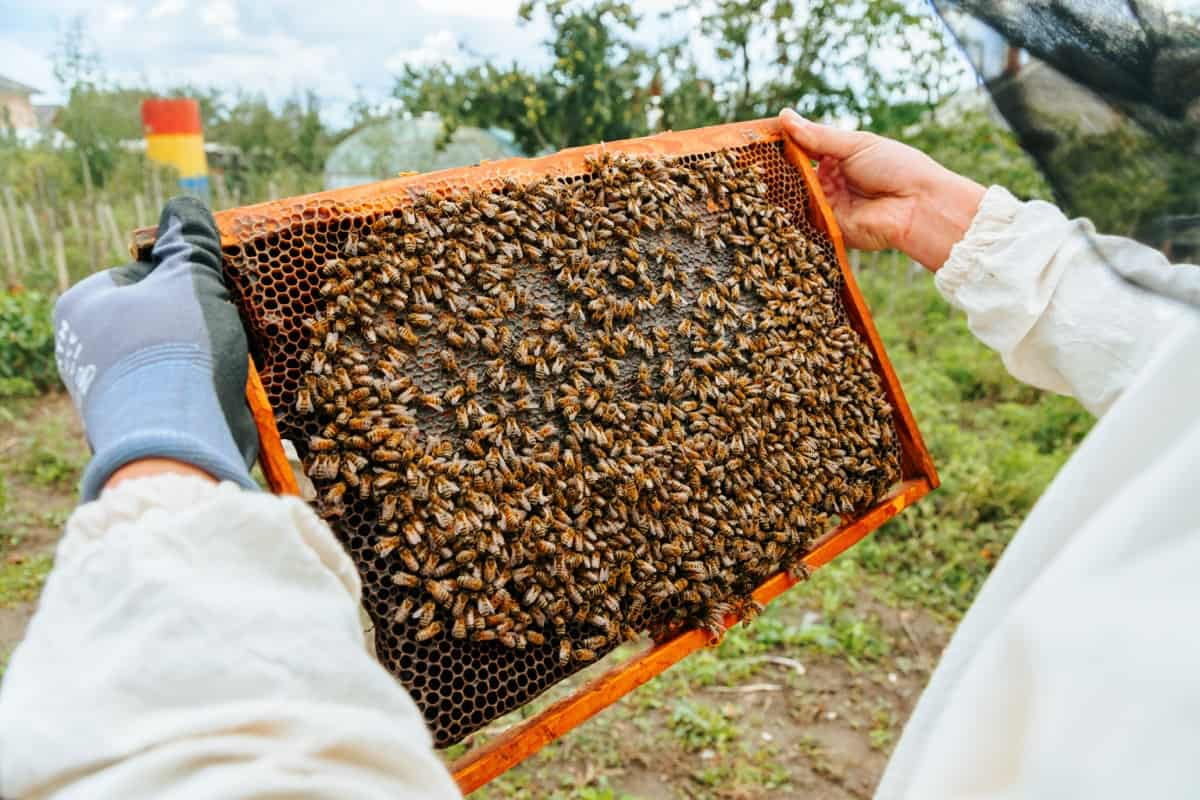
Conservation of Indigenous Bee Species
Conservation of indigenous bee species is crucial to maintaining biodiversity and ensuring local ecosystem pollination services. Examples of such species include the European honeybee (Apis mellifera), which plays a vital role in global agriculture but faces threats from diseases and pesticides.
Similarly, indigenous bee species like the blue orchard (Osmia lignaria) and the bumblebee (Bombus spp.) are essential pollinators for native plants and crops. Conservation efforts involve preserving natural habitats, reducing pesticide use, and promoting bee-friendly practices. Protecting these native bee species helps sustain local ecosystems, ensuring the reproduction of native plants and maintaining the delicate balance of biodiversity.
Promotion of Organic Honey Production
Organic honey is produced without synthetic chemicals or antibiotics, ensuring the purity of the final product. This approach safeguards both honeybees and their habitats. Beekeepers avoid using conventional pesticides, opting for natural alternatives when necessary. Organic honey production encourages biodiversity conservation, relying on natural forage sources and habitat preservation. These practices result in high-quality honey and contribute to ecological balance.
Awareness Campaigns on Beekeeping and Honey Benefits
Institutional strengthening will be the focus of the National Beekeeping and Honey Mission (NBHM). This includes reinforcing the Mission Headquarters at the national and state levels and the National Bee Board (NBB) and State Bee Boards/Missions. Funding will be allocated for creating databases, utilizing information technology, software development, and procuring hardware and vehicles.
NBB will also have the flexibility to appoint necessary staff under their rules and bylaws. Additionally, support will be extended to strengthen and promote State Bee Boards, Farmer Producer Organizations (FPOs), startups, and Self Help Groups (SHGs) involved in beekeeping. Special attention will be given to empowering women through beekeeping activities, and agri-entrepreneurs and startups will be encouraged to participate in beekeeping and honey production across various NBHM components.
Women’s Empowerment Through Beekeeping
The National Beekeeping and Honey Mission (NBHM) offers subsidies based on beneficiary type and geographical region. For states outside the Northeast and Himalayan regions, a 50% subsidy is given to individual beneficiaries, societies, firms, and companies. Institutional frameworks receive a 75% subsidy, while national and state-level governmental organizations receive 100%.
In case you missed it: How to Start Honey Bee Farming/Beekeeping from Scratch: A Complete Guide for Beginners
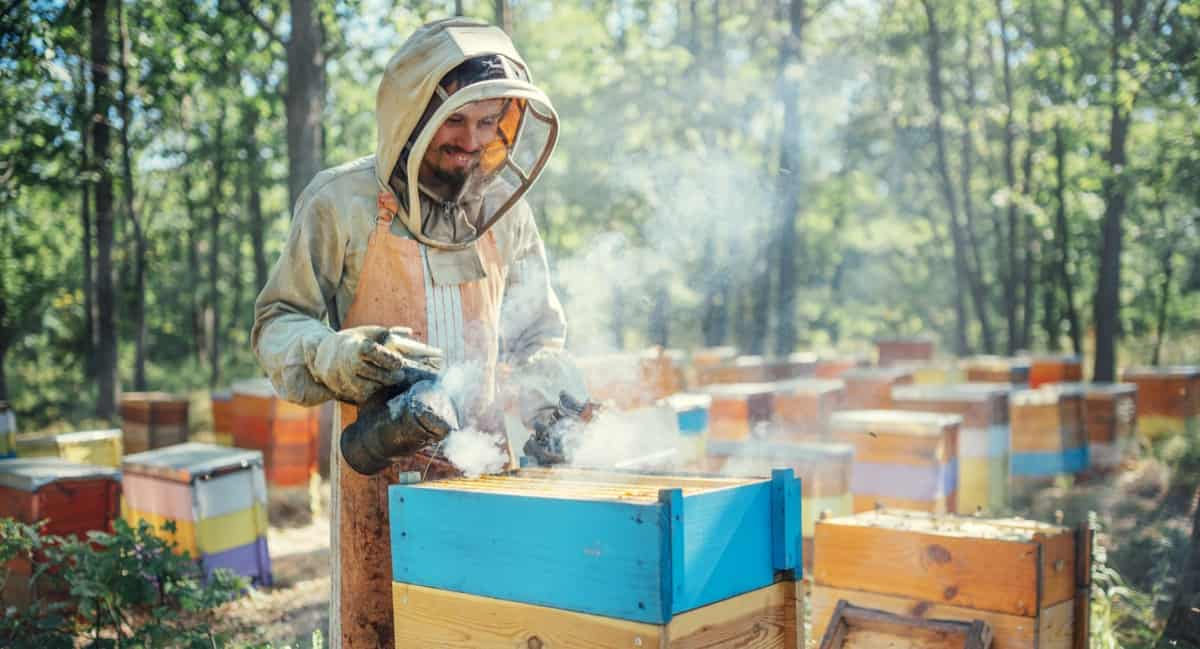
For the Northeast Region & Himalayan States, a 90% subsidy is given to all individuals, institutions, organizations, societies, cooperatives, Self Help Groups, JLGs, FIGs, firms, companies, FPOs, Member Societies, Firms, Companies of NBB, and FPCs. Government agencies and organizations in these regions receive 100% subsidy. Capacity-building programs, including training and skill development, receive 100% funding or subsidy for all implementing agencies.
Fund Flow Systems in National Beekeeping and Honey Mission
The National Beekeeping and Honey Mission (NBHM) provides administrative support for the Project Management Unit (PMU) and other implementing agencies. Funds are allocated for managing national-level mission activities, including hiring Chief Consultants, consultants, and supporting staff.
The National Bee Board (NBB) and other agencies will receive support for administrative expenses, including hiring Chief Consultants and supporting staff. A 6% Management Support will be allocated based on the total annual allocation, funds release, or expenditure, with 3.5% going to field implementing agencies, 2.5% retained by NBB, and 6% allocated to NBB for activities directly implemented by NBB.
International Collaboration and Knowledge Exchange
Collaboration with international agencies and organizations is a key aspect of the National Beekeeping and Honey Mission (NBHM) to promote the development of beekeeping in India. NBHM recognizes the importance of learning from global expertise and accessing modern technologies in the beekeeping sector. Under this collaboration, NBHM aims to partner with renowned international entities such as FAO, UNDP, Apimondia, World Bank, Asian Development Bank, and countries known for their advancements in beekeeping.
The objectives include importing cutting-edge technologies, equipment, and machinery and hiring international domain experts to share their knowledge. Furthermore, the collaboration involves organizing study tours, training programs, and exposure visits for Indian officials, farmers, and beekeepers to international destinations. These initiatives will be funded through NBHM’s Annual Budget allocations or the Annual Action Plan (AAP) of the National Bee Board (NBB).
In case you missed it: Bee Farming in South Africa: How to Start, Beekeeping Cost, and Profit
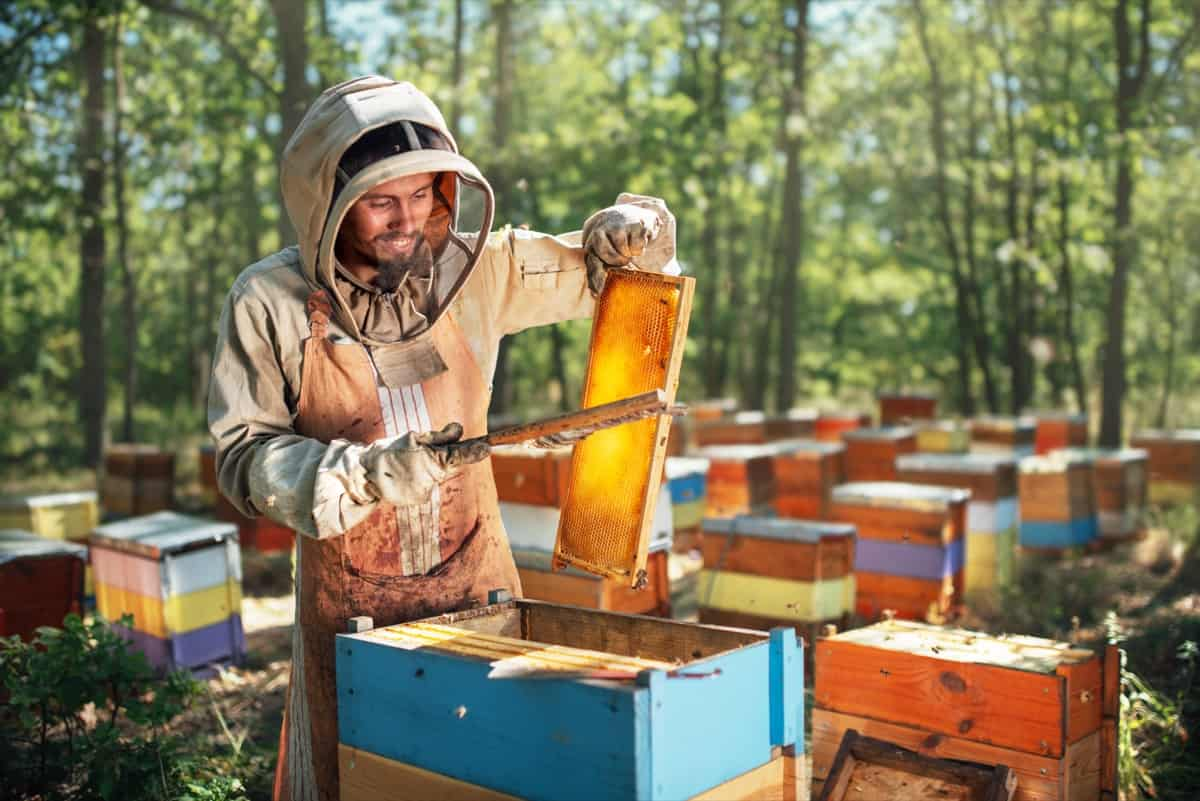
Conclusion
The National Beekeeping and Honey Mission (NBHM) is a transformative initiative fostering sustainable beekeeping in India. With diverse schemes and substantial subsidies, it empowers farmers, beekeepers, and institutions, enhancing pollination, honey production, and livelihoods. NBHM stands as a symbol of environmental conservation and economic prosperity for the nation.
- Types of Pesticides Used in Agriculture: A Beginner’s Guide
- Economical Aquaculture: A Guide to Low-Budget Fish Farming
- 15 Common Planting Errors That Can Doom Your Fruit Trees
- How to Make Houseplants Bushy: Effective Tips and Ideas
- Innovative Strategies for Boosting Coconut Pollination and Yield
- Pollination Strategies for Maximum Pumpkin Yield
- The Complete Guide to Chicken Fattening: Strategies for Maximum Growth
- Natural Solutions for Tulip Problems: 100% Effective Remedies for Leaf and Bulb-Related Issues
- Revolutionizing Citrus Preservation: Towards a Healthier, Greener Future
- Natural Solutions for Peony Leaf and Flower Problems: 100% Effective Remedies
- Maximizing Profits with Avocado Contract Farming in India: A Comprehensive Guide
- Natural Solutions for Hydrangea Problems: 100% Effective Remedies for Leaf and Flowers
- The Ultimate Guide to Choosing the Perfect Foliage Friend: Bringing Life Indoors
- From Sunlight to Sustainability: 15 Ways to Use Solar Technology in Agriculture
- The Ultimate Guide to Dong Tao Chicken: Exploring from History to Raising
- The Eco-Friendly Makeover: How to Convert Your Unused Swimming Pool into a Fish Pond
- Mastering the Art of Delaware Chicken Farming: Essentials for Healthy Backyard Flocks
- 20 Best Homemade Fertilizers for Money Plant: DIY Recipes and Application Methods
- How to Craft a Comprehensive Free-Range Chicken Farming Business Plan
- Brighten Your Flock: Raising Easter Egger Chickens for Beauty and Bounty
- How to Optimize Your Poultry Egg Farm Business Plan with These Strategies
- Subsidy for Spirulina Cultivation: How Indian Government Schemes Encouraging Spirulina Farmers
- Ultimate Guide to Raising Dominique Chickens: Breeding, Feeding, Egg-Production, and Care
- Mastering the Art of Raising Jersey Giant Chickens: Care, Feeding, and More
- Ultimate Guide to Raising Legbar Chickens: Breeding, Farming Practices, Diet, Egg-Production
- How to Raise Welsummer Chickens: A Comprehensive Guide for Beginners
- How to Protect Indoor Plants in Winter: A Comprehensive Guide
- Ultimate Guide to Grow Bag Gardening: Tips, Tricks, and Planting Ideas for Urban Gardeners
- Guide to Lotus Cultivation: How to Propagate, Plant, Grow, Care, Cost, and Profit
- Agriculture Drone Subsidy Scheme: Government Kisan Subsidy, License, and How to Apply Online
- Ultimate Guide to Raising Araucana Chickens: Breed Profile, Farming Economics, Diet, and Care
- Bringing Hydroponics to Classroom: Importance, Benefits of Learning for School Students
- Ultimate Guide to Raising Polish Chickens: Breed Profile, Farming Economics, Diet, and Care
- Ultimate Guide to Raising Australorp Chickens: Profile, Farming Economics, Egg Production, Diet, and Care
- Silkie Chicken Farming: Raising Practices, Varieties, Egg Production, Diet, and Care
- Sussex Chicken Farming: Raising Practices, Varieties, Egg Production, Diet and Care